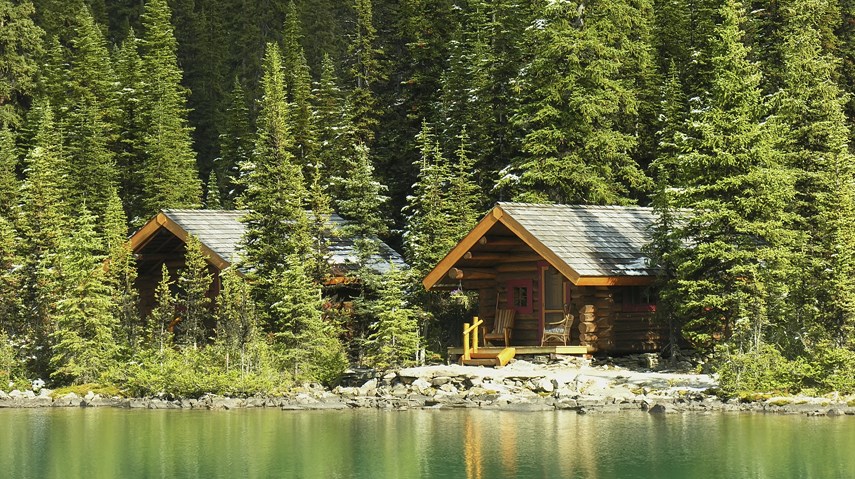I have just gone through our purchase contract for our home and the mortgage contract with our financial institution, and there is nothing in the fine print stating I’m required to rent my home as per the B.C. speculation tax or rent my home per the empty-home tax adopted by Vancouver.
The speculation tax and empty-home tax are unfair to homeowners who live, work and already pay property taxes for their home(s). The taxes would also force the homeowner to spend funds updating their own home, money many don’t have.
The taxes are punitive to the many hard-working people who made sacrifices so they could enjoy life upon retirement, such as purchasing a cottage home in which to spend summers or winters. It’s their choice as to whether the cottage home would be rented out during the remainder of the year or remain vacant.
These taxes will also force the homeowner to become landlord of their own home, and even require additional expenses to upgrade the home to rent it and avoid paying taxes. Remember, too, these taxes will be applied on a yearly basis in addition to municipal property taxes.
It should be the choice of a homeowner to have their home remain unoccupied, whether there is a shortage of housing or not. Does the homeowner not own the property and have the right to choose what to do with it, within the zoning for their municipality? The housing shortage is a separate problem entirely and needs to be dealt with by municipal, provincial and federal governments.
In addition, the people these taxes are intended to help will not be able to afford the rent charged by homeowners — anyone who can afford a second home is unlikely to rent it at a low price. Homeowners who wish to avoid paying these taxes will charge higher rents to pay down the additional expenses (loan or second mortgages) they obtained to purchase the second home.
The tax is also discriminatory, as it is applied only to selected communities, while Whistler and other prime second-home/vacation locations are being exempted. Either apply the speculation tax provincewide or not at all.
How are these taxes considered fair to homeowners who have owned a home for many years? Many homes might not meet current building codes and standards and therefore might have to be upgraded to be used as rentals. Renovations and upgrades are extremely expensive in this climate, and due to these taxes, the homeowner will need to spend their life’s savings — funds they put aside for retirement, etc.
It’s likely some homeowners might have to obtain a second mortgage, loan or line of credit to make changes necessary to rent out their property. In addition, they will have to obtain landlord insurance — another extra cost.
Being a landlord isn’t fun or desirable for many people. If the homeowner is elderly or unable to be the landlord, then getting a property management company is a further expense to the homeowner. Property damage due to bad tenants is another stressful thing to consider and, in most cases, the damage deposit doesn’t cover the expense of repairs for homes damaged by the renter.
In the late 1980s, I was part of a small group who invested in a second home. The renter was a family with good references. However, as we discovered, the tenant used our home as a place to stay while they were in process of building their own home.
They owned a large bird that chewed on and eventually destroyed the new countertops. The heat was on all the time without any venting, so condensation built up and ruined the walls. The owner brought in a metal tool chest, which leached rust into the floors. Saanich began sending notices because the lawn and garden were not being maintained — the grass was over a metre high. Instead of being responsible, the family vacated the house without notifying us, leaving garbage and thousands of dollars in damage in their wake. To get our money back we would have had to go to small claims court, further expense to the homeowner. The home was eventually sold at a loss.
If these taxes are applied, how are they going to be collected? It’s one thing to not pay your property taxes where municipalities have the right to sell the home, but if a homeowner doesn’t pay the speculation tax, are they, too, going to lose their home? Will penalties or interest be assessed for non-paying homeowners?
When are the taxes going to be collected — because collecting them at same time property taxes are owed will be unaffordable for everyone. What about rezoning requirements in urban areas or strata rules around rentals for condominiums and townhouses? Homeowners are asking these and many other questions — questions neither the provincial government nor the City of Vancouver appear to have considered, and for which there are no answers.
B.C. Finance Minister Carole James is quoted as saying: “With today’s legislation we’re acting to bring balance back to our housing market.” I see the scales tipping against homeowners, the building industry and individuals who wish to invest in the B.C. housing market.
The HST debacle helped bring down the B.C. Liberal government. Could this speculation tax be the death knell of the NDP government? As it stands, the proposed tax is unfair, discriminatory and punitive for homeowners — taxpayers — living in and outside B.C.
David Antrobus lives in Saanich.



